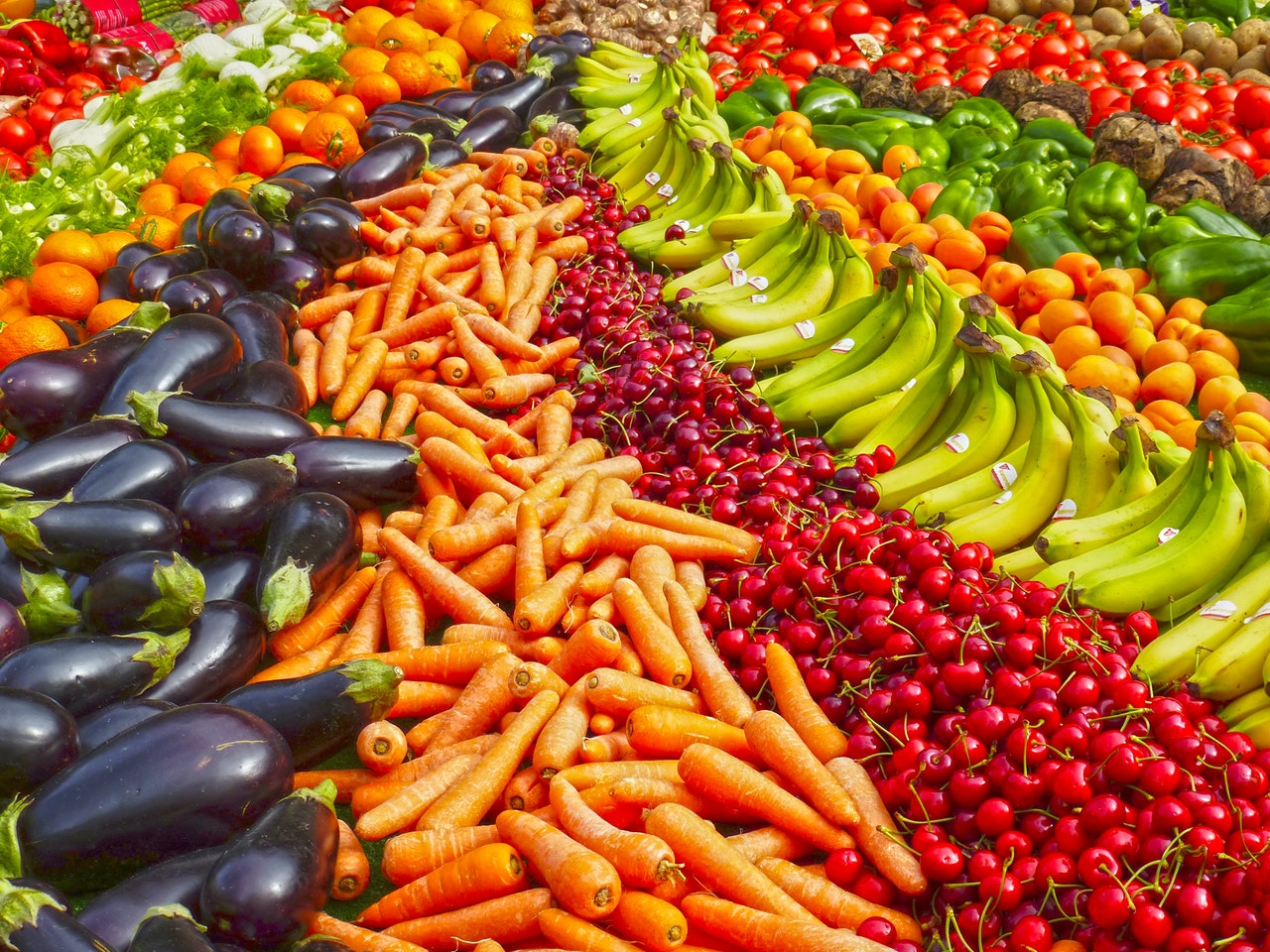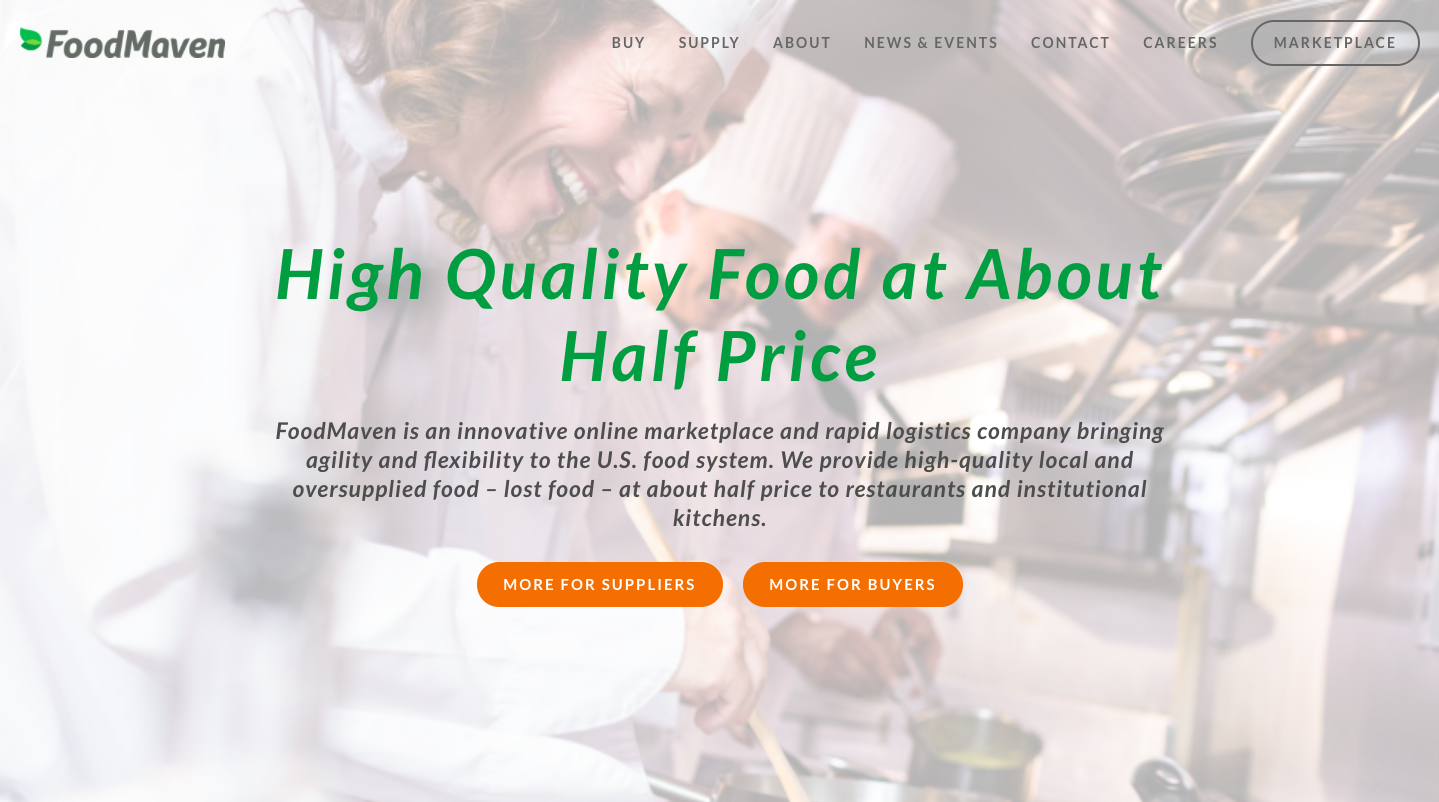
It is common knowledge that 40% of food produced in the US goes to waste.
Supermarkets and food distributors constantly need food to sell. They try to keep everything available for everyone, all of the time. To ensure this total availability, everyone in the supply chain keeps a buffer stock since the products perish rapidly. This surplus inventory comes in handy, in case some of the products go bad.
While it ensures that consumers always get what they want, the total waste it adds to the landfills is huge. It is estimated that one in every seven truckloads of perishable products, delivered to the supermarkets is thrown away. Sometimes the product does not fit the aesthetic standards any longer or has been on the shelf past its “sell by” date. At other times, the product is simply not popular among the supermarket’s customers and is treated as an overstock.
FoodMaven wants to fight this apparent ‘food waste’. The startup buys the overstock from supermarkets and delivers products to local buyers while they are still healthy and fresh. Patrick Bultema, a local entrepreneur in Colorado Springs, started the company in August of 2015. He sees it as a win-win opportunity for all the stakeholders.
Besides obvious advantages to Foodmaven’s buyers and suppliers, the entire community gains when less food goes to the landfills. Recognising that, the Department of Public Health and Environment of the state of Colorado, granted Foodmaven $383,000 under its Recycling Resources Economic Opportunity (RREO) Fund.

For a distributor or a grocer, Foodmaven turns overstock into revenue. Farmers and ranchers generate found revenue by selling their oversupply to FoodMaven. Mostly, this is a product that did not have access to the market. Suppliers had capital that was locked in surplus inventory and spent on disposing of the food ‘waste’. Foodmaven helps them recover the money. Most of the products Foodmaven offers on its marketplace are, either near their ‘sell by’ date, or don’t suit the supermarket shelves aesthetically. Foodmaven helps eliminate this waste and recuperate lost revenue for the sellers.
On the buyer side, Foodmaven offers huge discounts on supermarket goods and farm produce which makes economic sense for the restaurants, hospitals and other wholesale buyers. These buyers gain access to food available locally before it goes bad at prices as low as 50% of wholesale prices. It is no surprise that buyers swear by Foodmaven’s service.
“We started (503W) to offer local food and local products, but with a twist. Because Foodmaven works with so many local vendors, they’re able to offer locally sourced items such as chicken breast and give it to us at a discounted price. Therefore, we’re able to say that we can offer local products and then also give that to our customers in form of a discount”, says Nina Lee, the founder.
Foodmaven shares unsold products with local hunger relief centers. This helps the company uphold its zero landfill policy. The startup’s mission is to reduce waste and find buyers for food that would otherwise be wasted. Food that is not sold will be donated to charity and if anything is leftover, FoodMaven finds the next most enlightened solution so none of its inventory ends up in a landfill.
The agri-tech startup expects to grow to 200 employees this year and expand beyond Colorado. In 2017, FoodMaven diverted more than a million pounds of food from Colorado landfills. The team is keen to build a robust rapid logistics infrastructure and advance the product based on Big Data based optimization technology.
In January ‘18, Foodmaven armed itself with $8.6 Million in series A financing led by members of the Walton family. Earlier, in November, Walter Robb, Former Co-CEO Whole Foods joined the foodmaven board and provided a sizeable investment.
The most amazing aspect of the Foodmaven’s business is their approach to test markets before scaling. It is clearly evident that a similar infrastructure lacks all across the US. However, Foodmaven is focussing on winning trust and delivering a wonderful experience to its customers, one city at a time. Paul Graham has written in detail on how this is a winning trait in the world of startups.
The startup picked Denver as its second city after Colorado Springs, 6 months ago. We can expect the startup to test the mile high city market for a year and expand nationally in the second half of this year. Stay updated with their progress on Facebook, Twitter or LinkedIn.
Subscribe to our newsletter



